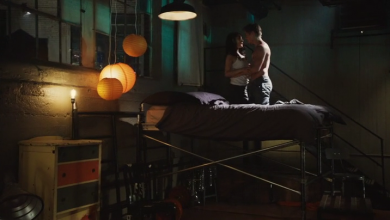The Racialized Blind Spot in “Blockers”
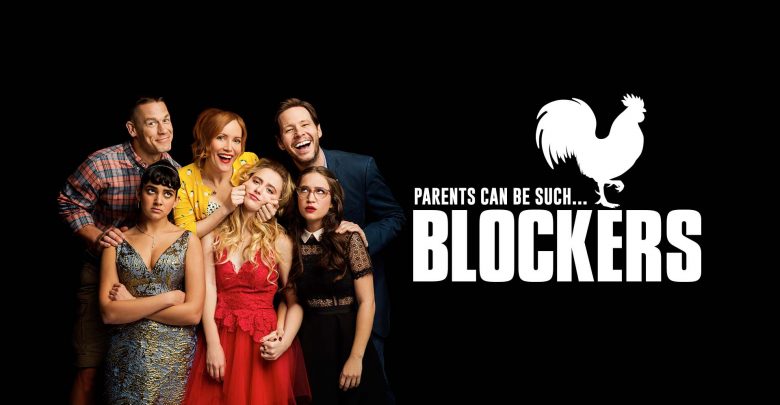
Blockers (2018) – its title is a PG stand-in for “cockblockers” – has been lauded by critics for presenting a progressive spin on the teen sex comedy genre. Most of the film revolves around the series of outlandish hijinks that unfold throughout a prom night (in a middle-class Midwestern suburb) as three overprotective parents go to great lengths to stop their three daughters from fulfilling their “sex pact” (i.e. losing their virginity with their respective prom dates). Director Kay Cannon (who is best known for writing the Pitch Perfect films) has been lauded for lacing the film’s overt raunchiness and crass humor with optimism, feminist messaging and a pro-LGBTQ subplot.
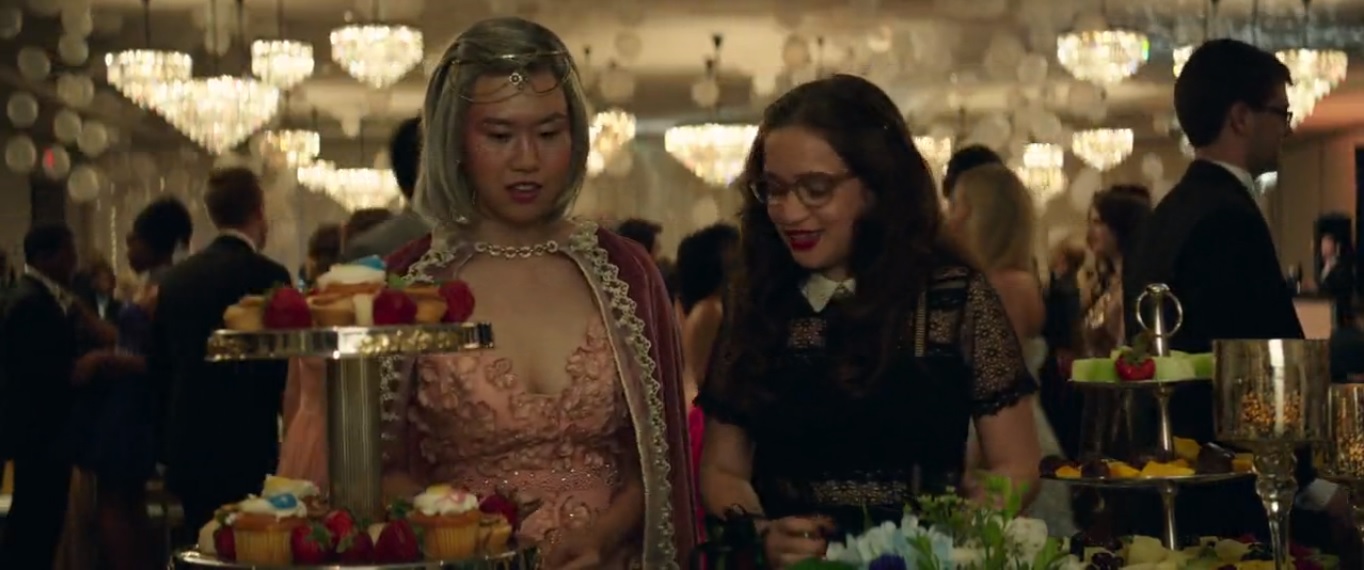
The closeted Sam (right) grapples with her sexual identity throughout the night before finally embracing her feelings for the self-assured Angelica (Ramona Young).
In her review for MediaVersity, Li Lai pointed out that the film has a mixed track record when it comes to racial representation. On one hand, it injects some racial diversity into the typically-white teen sex comedy. Sarayu Blue plays the feminist-minded Marcie (who claims to “wear the pants” in her marriage with John Cena’s Mitchell), while Geraldine Viswanathan plays her athletic, confident, and witty daughter Kayla. African-American actor Hannibal Buress appears briefly as Frank (Sam’s genial stepfather) while Asian-American actress Ramona Young plays Sam’s romantic interest, Angelica.

Sam worries that her sexual orientation will affect her friendship with Kayla and Julie, but Kayla’s biracial identity never poses any problems.
For the most part, the film does not grapple meaningfully with race. The conspicuously interracial marriages that appear onscreen are presented as an unremarkable feature of this pleasant and well-to-do Midwestern suburb. There is, however, a brief dialogue between Lisa, Hunter, and Mitchell (the show’s three primary parents, who are all white) that briefly points towards the fine line between acceptance and fetishization:
Lisa: Actually, I heard if you spend a significant amount of time with your children, that you develop some kind of, like, telekinetic bond with them.
Hunter: I hope that’s not true, because if it is Sam has been looking at a lot of Asian porn.
Lisa: Ha.
Mitchell: My wife is Asian.
Hunter: Indian.
Mitchell: That’s Asian.
Hunter: This is more like a … it looks like… when the typical Asian-
Mitchell: Good to see you.

Hannibal Buress’ Frank plays against racial stereotypes but has minimal screen time.
The show’s writers (Brian Kehoe and Jim Kehoe) thankfully did not reduce the film’s Asian-American female characters to hypersexualized and fetishized figures. They did, however, present yet another vision of a utopic “post-racial” America that eliminates Asian men altogether and pairs every Asian female character with a white love interest. Meanwhile, the only (seemingly) Asian male character that appears in the film is ridiculed and humiliated.
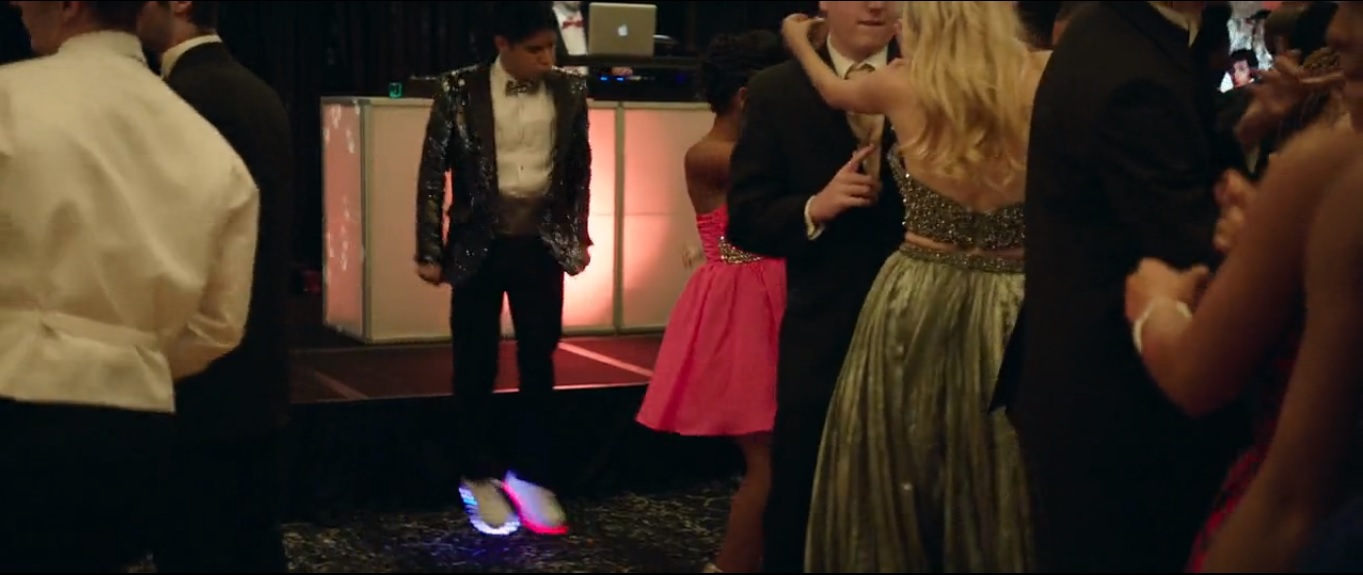
During prom night, the film’s three teenage protagonists debate about leaving the prom:
Julie: Look – Jake Donahue is just warming up. Don’t you wanna see him breakdance and probably hurt himself?
Kayla: No…
Julie: It’s gonna be so good!
Sam: Do you remember at the Sadie Hawkins dance when he tried to do the worm and he fell and broke his two front teeth?
Julie: It was great, and this is gonna be better! So we’re staying.
Jake Donahue’s ethnicity appears to be deliberately ambiguous. He is portrayed by Andrew Lopez, a Latino-American actor, but many viewers are likely to have assumed that the glowing shoes and apparent Dance Dance Revolution obsession signaled that he was Asian. As the girls leave the dancefloor (while their overprotective parents arrive), Jake whispers “this is my moment” to himself and takes center stage on the dance floor. After busting a few moves, Hunter accidentally bumps into him in mid-leap and disrupts his routine. Instead of apologizing, Hunter says “Fuck your moment”, and shoves Jake backward.
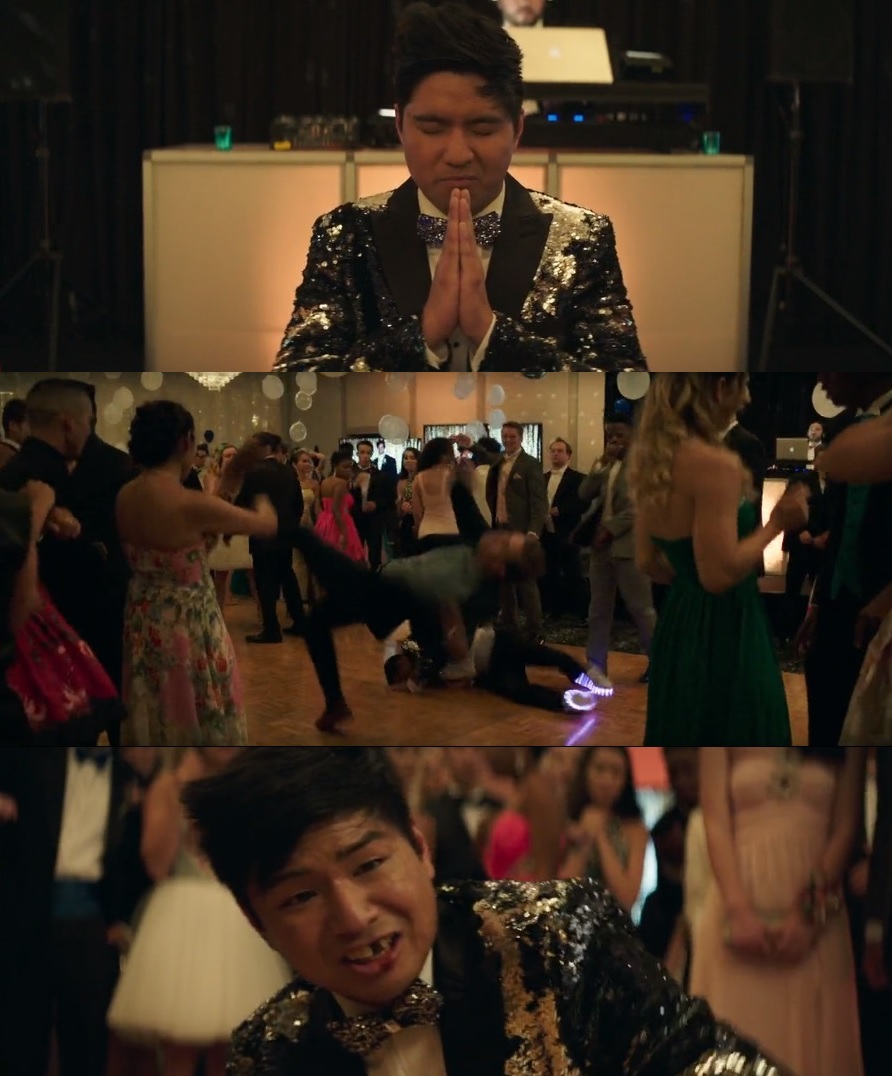
You ruined my moment!
Later that night, Hunter accidentally crashes into Jake again at the prom after-party:
Jake: What the fuc – you again!
Hunter: You!
Jake: What the fuck! What’s your beef with me dude?
Hunter: I don’t know who the fuck you are!
Jake: I’m Jake motherfuckin’ Donahue!
Hunter: That name means nothing to me!
Jake: Do you know what it’s like to be humiliated in front of everyone you know and have to seek redemption for that?
Hunter: Actually, yes I do!

A meta-commentary on Hollywood Asian male stereotypes?: “Do you know what it’s like to be humiliated in front of everyone you know and have to seek redemption for that?”
The punchline is that Hunter has walked in Jake’s shoes – he was previously ostracized by Lisa and Mitchell for cheating on his ex-wife. By the end of the film, he redeems himself in their eyes for proving to be an unexpectedly caring and thoughtful father to Sam (he whole-heartedly accepts her sexual orientation and encourages her to come out to her Julie and Kayla). He also gets to set the record straight about his infidelity. Jake, however, simply disappears from the narrative after his screen time as a racialized laughing stock expired. Blockers may have deviated from the sexism and homophobia of the teen movie genre, but it has unfortunately repackaged its racism for a new generation of impressionable American teens.
-
OFFENDER: Universal Studios
CATEGORY OF OFFENSE: Gender ( Asian male as Undesirable)
MEDIA TYPE: Movie
OFFENSE DATE: April 1, 2018





